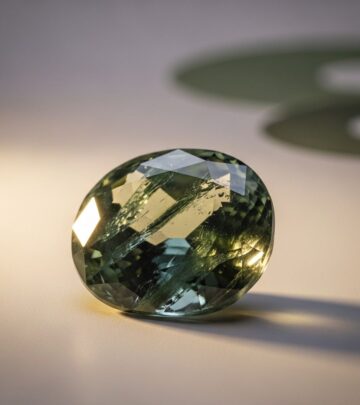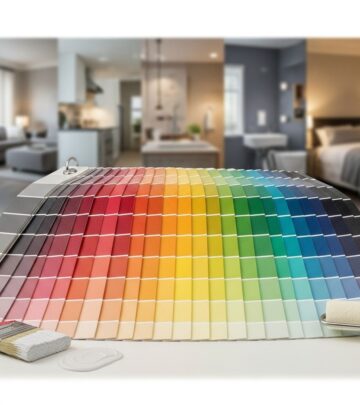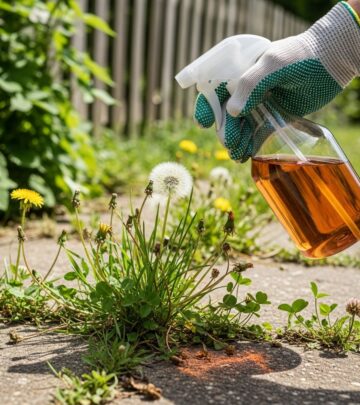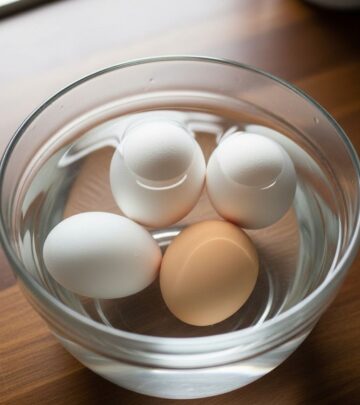How to Clean Grill Grates: Complete Guide for Every BBQ Fan
Remove burnt-on debris to even out heat and keep meals safer and more flavorful.
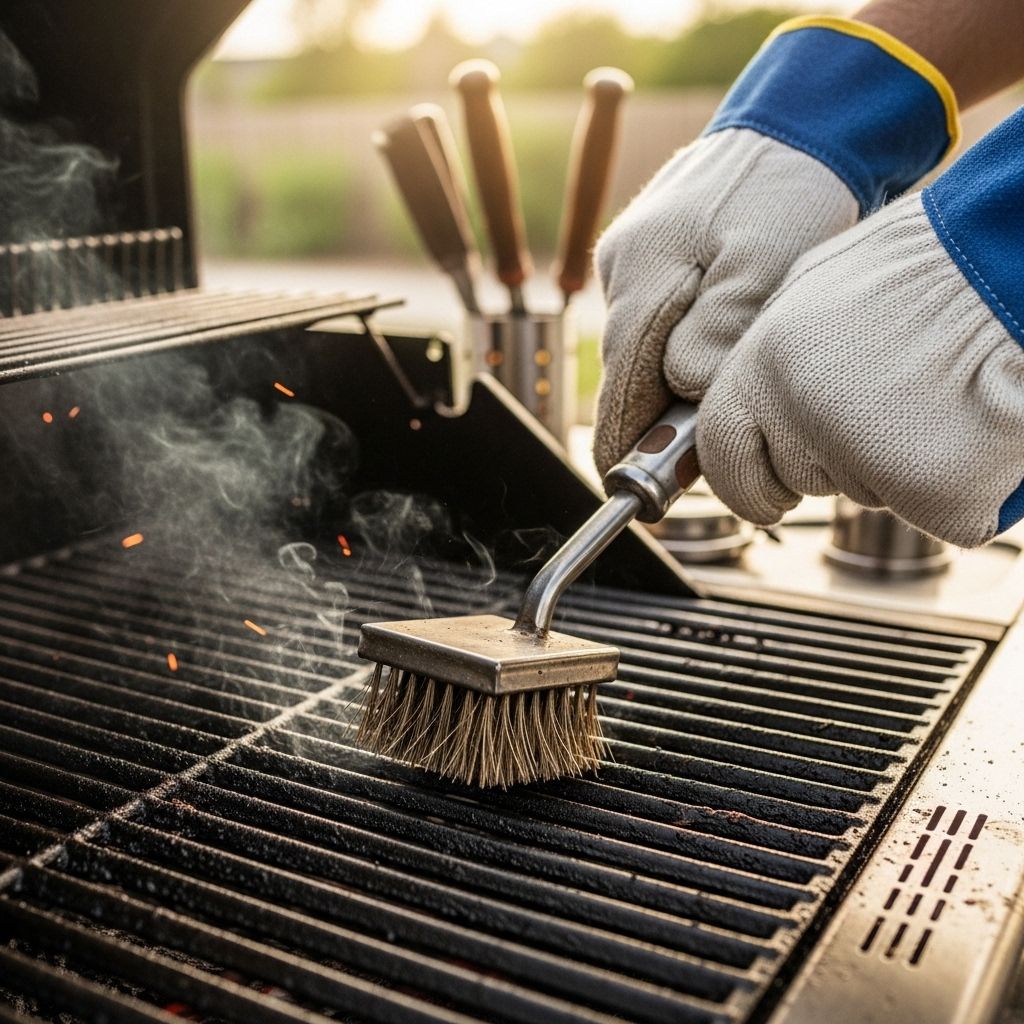
How to Clean Grill Grates: The Ultimate Step-by-Step Guide
Grill grates are the very foundation of every successful barbecue, but over time, they accumulate food debris, grease, and burnt-on residue that can affect the flavor of your food and the performance of your grill. Regular cleaning of grill grates not only keeps your grill functioning at its best but also extends its lifespan and ensures your grilled food stays delicious and safe. This in-depth guide covers everything you need to know about cleaning any type of grill grate, including materials, methods, and expert tips for tackling even the toughest messes.
Why Cleaning Grill Grates Matters
Neglecting your grill grates leads to buildup of charred food, fats, and bacteria. These residues can not only impart unpleasant flavors but may also be a fire hazard and harbor bacteria that can contaminate your next meal.
Proper grate cleaning ensures:
- Better Tasting Food: Residue can transfer off-flavors during grilling.
- Improved Grill Performance: Clean grates heat evenly and reduce flare-ups.
- Longer Grill Life: Regular care prevents rust and corrosion.
- Healthier Cooking: Minimizes risk of foodborne illness.
How Often Should You Clean Grill Grates?
- After Every Use: Give your grates a quick cleaning when the grill is hot to prevent buildup.
- Deep Clean: Perform a thorough cleaning at least once a month during heavy grilling season.
- Before Storage: Conduct a deep clean and dry thoroughly before storing your grill for winter.
Pre-Cleaning Checklist
Before diving into your cleaning routine, prepare:
- Protective gloves
- Sturdy grill brush or grill cleaning tool
- Dish soap (preferably strong degreaser, e.g., Dawn Ultra)
- Baking soda, white vinegar
- Bucket or basin large enough for your grates
- Cleaning pads, old rags, microfiber cloths
- Grill-safe container (for steam method)
- High-smoke point oil (for reseasoning)
The Four Most Effective Methods for Cleaning Grill Grates
1. The Burn-Off Method (Firing)
This is the quickest and simplest way to clean grates right after you finish grilling.
- Turn burners to high (or add fresh coals) with the grill lid open for 10-15 minutes. This incinerates most leftover debris.
- Once the residues turn white/gray and flaky, use a grill brush or ball of aluminum foil (with tongs) to brush the grates clean. Move brush front-to-back along each bar.
- Let the grill cool slightly before further cleaning if needed.
Tip: Always keep hands and arms clear of hot grates. If using a wire brush, inspect grates for stray wires before grilling again.
2. The Steam Bath Cleaner
Harness the power of steam to loosen stubborn residues from your grill grates.
- Heat the grill to about 600°F (or as hot as possible for charcoal) with grates in place.
- Turn the grill off. Place a grill-safe container (like a disposable aluminum tray or coffee can) filled with water directly on the grates.
- Close the lid and let the steam penetrate for 30 minutes. The steam softens and lifts tough grime.
- Open the grill, carefully remove the container, and scrub the now-loosened residue with a brush or silicone sponge.
Tip: Consider using a grill cleaning brush designed to work with steam for even more efficient cleaning.
3. The Soap and Water Soak
The classic method for a thorough, gentle clean, especially for caked-on grease.
- Fill a large basin or your bathtub with warm water and add concentrated dish soap.
- Remove grates from the grill and fully submerge them. Soak for at least 30 minutes to soften residue.
- Scrub with a brush, cleaning pad, or non-abrasive sponge.
- Rinse thoroughly with clean water. Dry promptly with towels—especially critical for cast iron or stainless steel grates to prevent rust.
Tip: Make a soapy water soak a monthly ritual to maintain the longevity of your grill grates even if you burn off residue after each use.
4. Vinegar and Water Spray
Vinegar is natural, effective, and especially great for light, quick cleaning.
- Mix equal parts white vinegar and water in a spray bottle.
- Spray generously over the grill grates and let sit for 10-15 minutes.
- Scrub the grates with a grill brush or cleaning pad to remove loosened gunk.
- Rinse and dry thoroughly before use.
Tip: This method is ideal for quick maintenance between deep cleans, especially for porcelain-coated grates.
Choosing the Best Cleaning Tools for Your Grates
Selecting the right cleaning tool depends on grate material and the nature of the residue:
- Wire Grill Brush: Effective and durable for stainless steel and cast iron grates. Inspect grates for bristles after each use.
- Nylon Brushes: Safe for porcelain-coated grates. Only use on cool grates as heat may melt nylon.
- Scouring Pads & Grill Cleaning Blocks: Good for stubborn stuck-on areas; avoid overly abrasive pads on porcelain.
- Aluminum Foil Ball: A quick DIY scrubber, used with tongs.
- Specialty Brushes: Spiral or brushless steam cleaners are good for some grate types—refer to manufacturer guidance.
- Grill Floss Tools: Allow cleaning of round bar grates from all sides.
Comparison Table: Best Tools by Grate Type
| Grate Material | Best Cleaning Tools |
|---|---|
| Stainless Steel | Wire brush, grill cleaning block, foil ball |
| Cast Iron (Uncoated) | Wire brush, stiff bristle brush; dry and oil after cleaning |
| Porcelain-Coated | Nylon brush (cool only), soft pad, wooden scraper |
How to Clean Grates Based on Material
- Stainless Steel Grates: Durable, can withstand wire brushing and strong cleaners. Soak in soapy water for deep cleans and dry thoroughly to avoid water spots.
- Cast Iron Grates: Require prompt drying and a light oil coat after every wash to prevent rust. Never soak for more than an hour, and use minimal water.
- Porcelain-Coated Grates: Do not use metal brushes or scrapers, which can damage the surface. Use nylon brushes or gentle pads and avoid harsh chemicals.
Extra Tips and Grill Grate Cleaning Hacks
- Magic Eraser: Extra durable scrubbers like Mr. Clean Magic Eraser can help lift grease on grill exteriors or easy-clean grates. Always rinse well and dry thoroughly afterward.
- Addressing Water Stains & Weather Damage: For stubborn water or oxidation spots, use a soft pad with soapy water and polish dry with a microfiber towel.
- Grill Cover: Invest in a heavy-duty grill cover to shield your grill from rain and moisture, greatly lengthening its lifespan.
- Inspect for Rust: Regularly check all grates and hardware for signs of rust, particularly with cast iron or exposed steel. Treat rust spots immediately and keep grates seasoned with vegetable oil.
How to Reseason Your Grill Grates
- Dry the grates thoroughly after cleaning.
- Apply a thin coat of high-smoke point oil (e.g., grapeseed or canola) to all surfaces.
- Return the grates to the grill and heat on high for 10-15 minutes. This forms a non-stick, rust-resistant surface for your next cookout.
Troubleshooting Common Grill Grate Problems
- Sticky Grates: Usually from insufficient cleaning or lack of oiling. Clean thoroughly and apply oil after drying.
- Persistent Rust: Remove loose rust with a wire brush, wash, dry, and reseason as needed. If severe, replace grates.
- Flaking Coating (Porcelain): Indicates misuse of abrasive tools. Switch to nylon brushes or soft pads and avoid harsh chemicals.
Grill Grate Cleaning Safety Tips
- Allow grates to cool to a safe temperature before soaking or handling directly.
- Use protective gloves when handling hot grill parts or strong cleaners.
- Store brushes and tools away from children and inspect regularly for wear or loose bristles.
- Dispose of debris away from flammable materials.
Frequently Asked Questions (FAQs)
What is the best way to clean grill grates after cooking?
The burn-off method is most efficient: crank the burners to high for 10-15 minutes, then scrub with a grill brush or foil ball while grates are hot and residue is flaky. For heavier accumulation, follow with a soapy soak.
How do you remove rust from grill grates?
Scrub the rusted area using a wire brush for stainless steel or a soft pad for coated grates. Wash with soap and water, dry thoroughly, and apply a thin coat of oil to prevent recurrence. For persistent rust, repeat or consider replacing the grates.
Can I use oven cleaner or harsh chemicals?
Avoid harsh oven cleaners, especially on coated or cast iron grates, as they can corrode the surface and are unsafe for food contact. Stick to dish soap, baking soda, and vinegar for cleaning.
How do I clean grates without a wire brush?
Use a crumpled ball of aluminum foil gripped with tongs to scrub, or a wooden scraper for stuck-on bits. Damp microfiber cloths or nylon scrub pads also work for gentle residue removal.
How can I prevent grill grates from rusting?
Always dry grates thoroughly after cleaning and apply a thin coat of high-smoke point oil. Store your grill covered and away from rain or snow.
Key Takeaways for Pristine Grill Grates
- Clean after every use for best performance and flavor.
- Match cleaning tools to your grate material to avoid damage.
- Dry and oil grates immediately after deep cleaning, especially for cast iron and stainless steel.
- Use natural cleaners like vinegar for regular touch-ups and stronger degreasers for deep soaks.
- Invest in a grill cover to protect from the elements and extend your grill’s life.
With these tried-and-true cleaning strategies and maintenance routines, you’ll be ready for perfect grilling all season long. Clean grates mean better-tasting food, safer mealtimes, and years of dependable barbecue fun.
References
Read full bio of medha deb

